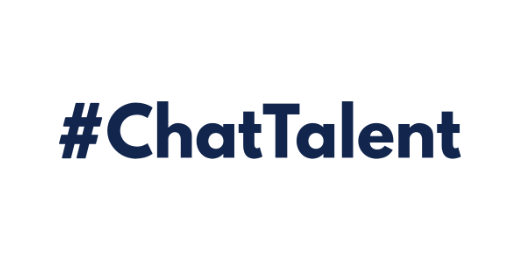Tldr: Educate yourself and your colleagues about recruitment marketing, approach it strategically, see it as value generation instead of a cost creation and start doing it!
A little over a year ago I made the switch from working at one of Europe’s largest staffing firms to working at an international recruitment marketing agency – and it’s been a mind-blowing experience.
The level of disruption (sorry for the cliche word) that developments in technology, machine learning, people’s online behaviour and how this can be measured and influenced bring is truly unparalleled.
With that, I mean that I’ve seen companies across all industries cut their time to hire in half and reduce cost per hire by up to 80%, while at the same time increasing the quality of their hires and employee retention rates.
SO, WHY ISN’T EVERY EMPLOYER EMBRACING RECRUITMENT MARKETING?
Well, judging by the conversations I’ve had with hundreds of talent acquisition leaders and professionals, it’s mostly investment related… the inability to free it up for time and budget for recruitment marketing, because it’s already invested in more familiar traditional recruitment strategies like sourcing, referrals and agencies.
For example, you wouldn’t believe the number of times I’ve witnessed talent acquisition leaders unable to invest 10K into recruitment marketing when hard data predicted it would bring them 5-10 hires… only to spend the same amount on 1 hire in agency fees a short while later, when sourcing and incentifying referrals didn’t deliver a sufficient number of qualified candidates and hiring managers started ringing the alarm.
This would happen over and over again until annual agency spent would exceed what it would cost to execute an elaborate recruitment marketing strategy for a decade. (Not exaggerating, I’m talking about millions per annum in many cases).
Side note: The sad consequence is that the more companies do this, the less capable they become to recruit successfully themselves. This because agencies do not promote their customers’ brands, but their own, with their customers’ accounting for the costs. To make matters worse, agencies are fishing in exactly the same (talent) pool as their customers’ are. So investing in agencies increases their competitive advantage over the employers they are servicing (read robbing) in the long term.
THE 4 MAIN REASONS HOLDING YOU BACK AND HOW TO BEAT THEM
Is the scenario above playing out at your company as well? Then you’re probably dealing with at least one, maybe two, or three and in the worst case, all of the next four reasons:
- There’s a lack of awareness and expertise
- Talent acquisition isn’t approached strategically
- Talent acquisition is treated as a cost centre
- It’s hard to get started
If so, don’t worry! You’re far from alone. Countless companies are encountering these issues. I’ll cover them one by one and offer advice how to deal with them.
Lack of awareness and expertise
Most people involved with talent acquisition lack marketing experience and know-how. Unfortunately for them the way people acquire information has rapidly shifted from off- to online. This means that for companies to be successful when acquiring talent, they have to establish a strong online presence, by presenting themselves in the right way, in the right places and at exactly the right time.
This is what you can do to manifest this idea and cement the approach in your organisation:
- Align internally by breaking down the silos between your recruitment and marketing department. Start by simply planning a meeting and exchanging insight about what you’re doing and what your key objectives are. Acquire an understanding of how marketing supports sales in terms of lead generation, lead nurturing and branding. You’ll find that this is very applicable for talent acquisition and everyone will most likely leave the meeting buzzing with ideas on how to collaborate.
- Educate yourself online. I highly recommend checking out Recruitment marketing insights, Transform Recruitment Marketing, Clinch Academy, Breaking Beard, Beamery Academy, #ChatTalent (of course!), Recruiting Future and Recruiting Brainfood. Might seem like a lot of info at once, but hey, Rome wasn’t built in one day. Take it step by step, at your own pace and master the theory.
- Educate yourself offline by visiting events. They are often free for non-vendor attendees and offer invaluable opportunities to meet with peers, learn from experts, participate in workshops and explore vendors. In-House Recruitment Network, Recruitment Events Co., Global HRU, Truemunity, World Employer Branding Day, and Talent Leaders Connect, are all addressing recruitment marketing this year.
- Talk to experts. You could have designed and built your own house, you could have provided your own medical treatment when you were ill… but did you? I hope you see where this is going. Most of us get expert support from an architect and construction workers when designing and building a house, or a doctor when we’re feeling ill. Often we’ll get multiple opinions. Do the same with recruitment marketing. Talk to industry experts. Most offer their advice for free and will prove invaluable in getting started the right way, while avoiding pitfalls.
- Involve stakeholders from multiple disciplines and seniority levels in all of the above. This obviously means people from your sourcing team and hiring managers, but also other departments. Marketing should be there, especially branding, communications and lead generation specialist, because of their expertise. And Finance as well, particularly your CFO, because someone’s got to pay for it all and the better your CFO understands the business case, the more commitment you can expect. Optionally also involve HR, because, depending on the scale of your recruitment need, eventually new roles like that of the Employer Branding Specialist and Recruitment Marketer will very likely have to be created.
Recruitment isn’t approached strategically
Remember that scenario we covered earlier? This is a typical symptom of not planning ahead. One of my first managers always used to remind us that if we fail to plan, we plan to fail. Yet, talent acquisition at most organisations is still very reactive. Often limited to a rough yearly forecast, based on past experience, attrition data, growth expectations and quarterly (re)evaluations. The two most important parties, recruitment and hiring managers, rarely communicate directly and if they do, it’s on an ad hoc basis, when the sh*t’s already hitting the fan.
There’s really only one way to tackle this problem and that’s by implementing a continuous forecasting and communication loop between them. I haven’t seen anyone offer a better solution for this than Foresight Forecast. The further ahead you plan, the more effective your recruitment marketing campaigns can be.
Recruitment is treated as a cost centre
Unlike marketing and sales, who usually report to a CCO, who in turn reports to a CEO, talent acquisition usually reports to a CHRO/CTAO, who in turn often reports to a CFO. That makes a big difference. Generally speaking, CCO’s try to increase revenue, while CFO’s try to cut cost. Hence investment in marketing and sales is viewed as enablement of revenue generation, while investment in talent acquisition is viewed as a cost.
That’s why it’s no surprise that many recruitment directors are limited in their budget to the labour cost of their staff, their applicant tracking system and LinkedIn recruiter seats. Authority over other recruitment related investments, like the use of agencies, supporting technology and recruitment marketing often reside with procurement, department heads or hiring managers.
It’s the reason why no-one asks questions when ‘the business’ collectively spends millions on recruitment agency fees, while experienced talent acquisition specialists have to get approval for the smallest investments in online recruitment from people (like hiring managers) with no experience in online advertising at all (seen this many times).
This obviously doesn’t make sense. Talent acquisition should be viewed as a revenue-generating activity just as much as sales are and, therefore, it should be supported by marketing just as well.
The best way to achieve this paradigm shift is to build a business case around the value talent acquisition creates. This is the easiest for sales, because every sales rep accounts for a certain amount of revenue, but possible for practically every role in your workforce.
Ask your hiring managers what impact each day their vacancies aren’t fulfilled makes on their output and you’ll quickly be able to calculate and monetize the estimated impact of talent acquisition on your company’s success.
It’s hard to get started
Here are a few ground rules to get you successfully up and running in no time:
- Create an autonomous and multidisciplinary project team of no more than 7 people (following Jeff Bezos two pizza rule). Make sure they communicate directly, meet often on a structural basis and work together to meet mutual, department transcending, objectives like reducing the time and cost, or increasing quality when hiring. I recommend focusing on KPI like the TTH (time to hire), CPA (cost per applicant) and CPH (cost per hire). Quality of hires takes more time to measure because people have to work for a while before anything meaningful can be said about it. If you’re using test or assessment in your application process you can measure the quality of applicants right away. Making it a good KPI as well.
- Set a budget. Most likely you won’t even have to secure a new budget, but rather shift it from another recruitment strategy. For example, see the results the same investment in 1 to 5 agency hires will get you when you spend it on recruitment marketing.
- Use a lean approach. Plan and execute small S.M.A.R.T. experiments to improve. This can be regarding your candidate personas, job descriptions, visuals, videos, landings pages, advertising strategy, nurturing process, application process. Don’t try everything at once, but pick your battles. Make your experiments measurable, benchmark, capture data and iterate based on what you’ve learned. Job marketing campaigns run for approximately 1 month, fairly cheap at a cost between 1-3K, quickly start showing results and are highly measurable, making advertising jobs very well suited get going and experiment with different target audiences.
Well, if you made it all the way to the bottom of this (kinda long, but hopefully relevant)read the above must truly be a topic of interest for you.
Please feel free to reach out to me for free advice at any given time. I’m easy to find and promise not to bite.






